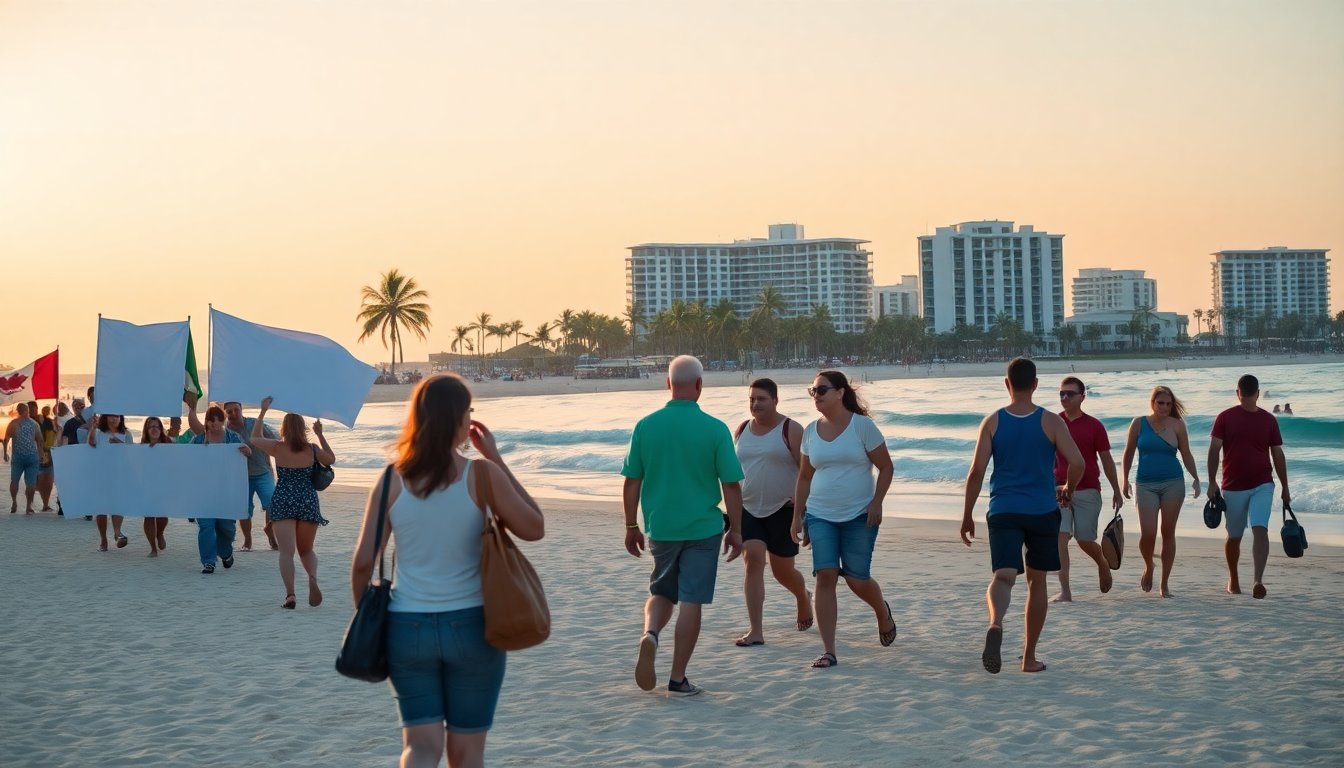Table of Contents
The update to Canada’s travel advisory regarding Mexico has sparked significant political discourse within the country. Released on November 13, the advisory specifically lowered the threat level for certain areas along the Pacific Coast, particularly around Mazatlán in Sinaloa. However, this easing of travel restrictions was overshadowed by local media interpretations suggesting that Canada had issued a new warning affecting 14 states, including Mexico City. This situation exemplifies how updates to travel advisories can quickly evolve into broader political narratives.
The media frenzy surrounding the advisory coincided with an anti-government protest in Mexico City on November 15. Demonstrators, largely composed of Generation Z activists, expressed their grievances over perceived rising insecurity in the nation. The protest escalated as masked individuals dismantled barriers protecting the National Palace, leading to confrontations with police, who responded with tear gas and smoke bombs.
Political responses and media misinterpretations
Deputy Maribel Solache González from the ruling party, National Regeneration Movement (Morena), criticized the media’s portrayal of the Canadian advisory, arguing it was politically used against President Claudia Sheinbaum. She claimed that the discourse surrounding insecurity was being manipulated by opposition parties to undermine the government. Solache González stated, “The narratives around security issues, especially those concerning Michoacán, seem aimed at discrediting the first female president of North America.” This viewpoint reveals the complex interplay between media reports and political agendas.
Protests and public sentiment
The timing of the travel advisory and the protest is particularly noteworthy. The demonstration followed the tragic assassination of Carlos Manzo, the outspoken anti-cartel mayor of Uruapan, Michoacán. His death ignited widespread outrage and subsequent protests throughout the region. In light of these events, the opposition has seized the opportunity to argue that the Canadian advisory accurately reflects the current security landscape in Mexico.
Deputy Mario Zamora Gastélum, representing the opposition Institutional Revolutionary Party (PRI), emphasized the dire situation in Sinaloa, claiming, “We have been engulfed in violence for over a year now.” He highlighted the alarming number of murders and disappearances in the area, asserting that the Canadian advisory is a stark reminder of the reality faced by residents. A recent survey indicated that around 90% of Culiacán’s population lives in constant fear, underscoring the urgent need for government action.
Government reactions and future implications
In response to the growing concerns, President Sheinbaum announced that her administration would seek clarification from the Canadian Embassy regarding the travel advisory. Despite the backlash, Sheinbaum remains optimistic, pointing out that tourism from Canada has risen by 11% this year, suggesting that these advisories may not hold significant weight in the eyes of potential visitors.
Interestingly, the Mexican government has not confirmed if it formally requested further clarification from Canada. A spokesperson for Global Affairs Canada stated that they do not engage in discussions about state-to-state communications, maintaining a level of diplomatic distance.
Calls for change and local perspectives
Local leaders are divided on the implications of the travel advisory. Deputy Paulina Rubio Fernández, representing the National Action Party (PAN) from Jalisco, voiced her concerns over the federal government’s inability to control escalating violence. She remarked that the advisory reflects the grim reality of increasing violence across various states, indicating a failure in the government’s security strategy.
Meanwhile, Francisco Aguilar Ordóñez, president of the hoteliers and restaurateurs association in Acapulco, urged Canada to retract its advisory entirely. He argued that the region is safe for tourists, stating, “We welcome Canadian visitors and ensure their safety while enjoying our hospitality.” This sentiment demonstrates the local desire to counter negative perceptions that may deter tourism.
The recent Canadian travel advisory has highlighted ongoing security issues in Mexico while igniting a political debate that underscores the complexities of governance, media influence, and public sentiment. As the Mexican government navigates these turbulent waters, the future of its security policies and international relations remains uncertain.


